|
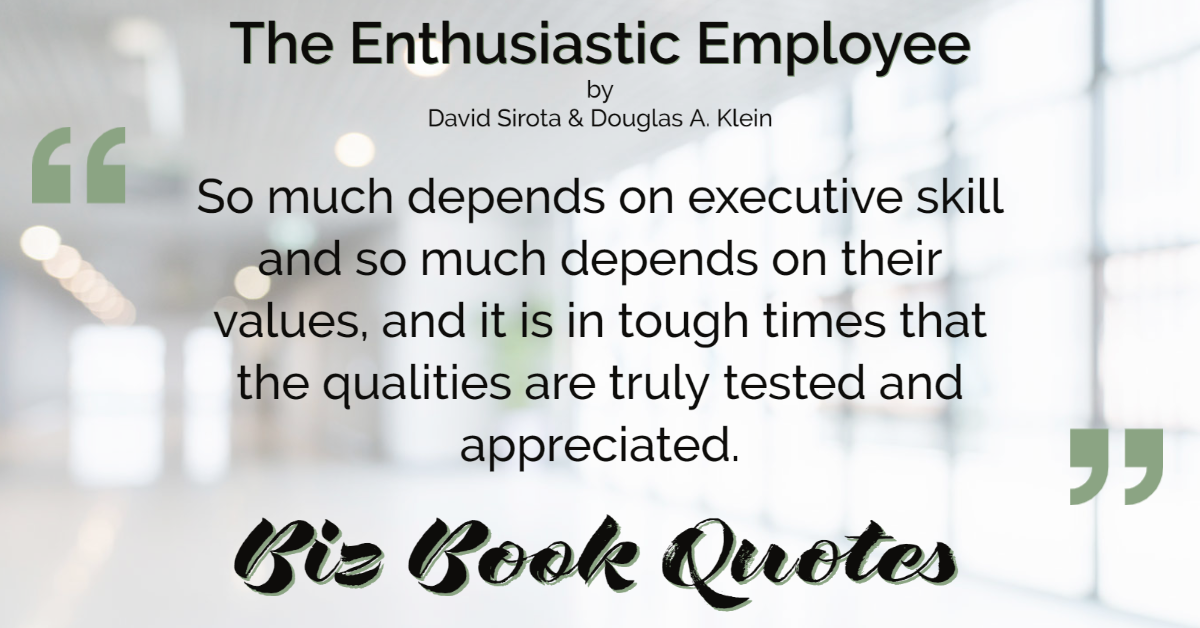
|
The Enthusiastic Employee:
So much depends on executive skill and so much depends on their values, and it is in tough times that the qualities are truly tested and appreciated.
|
178 |
|
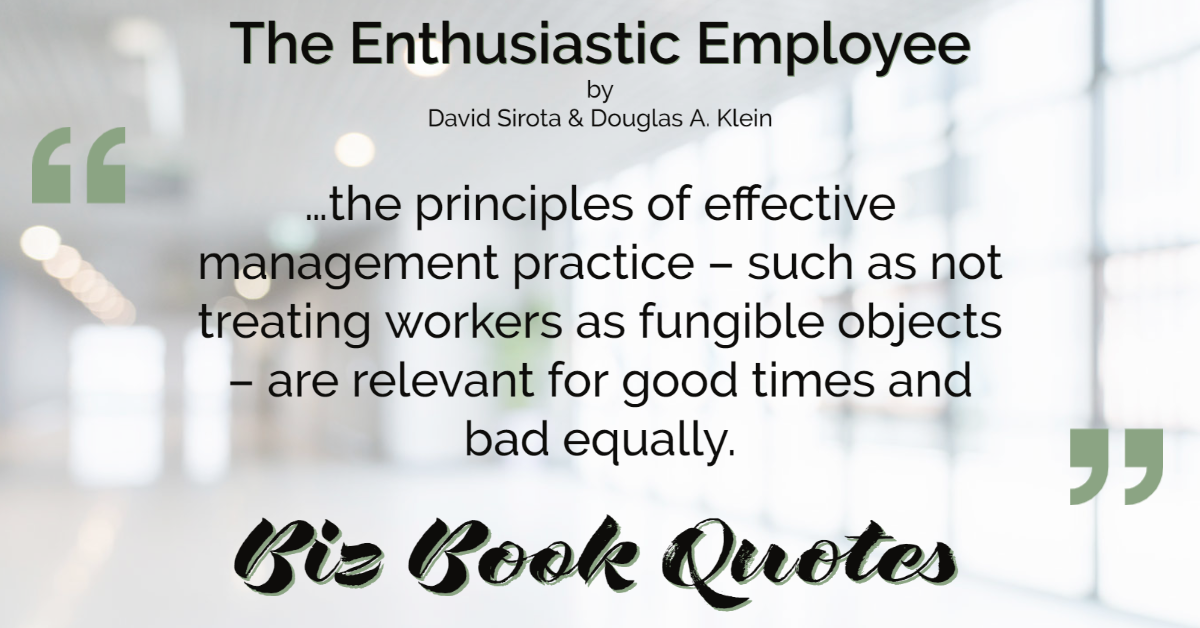
|
The Enthusiastic Employee:
…the principles of effective management practice – such as not treating workers as fungible objects – are relevant for good times and bad equally.
|
179 |
|

|
The Enthusiastic Employee:
Loyalty begets loyalty.
|
179 |
|
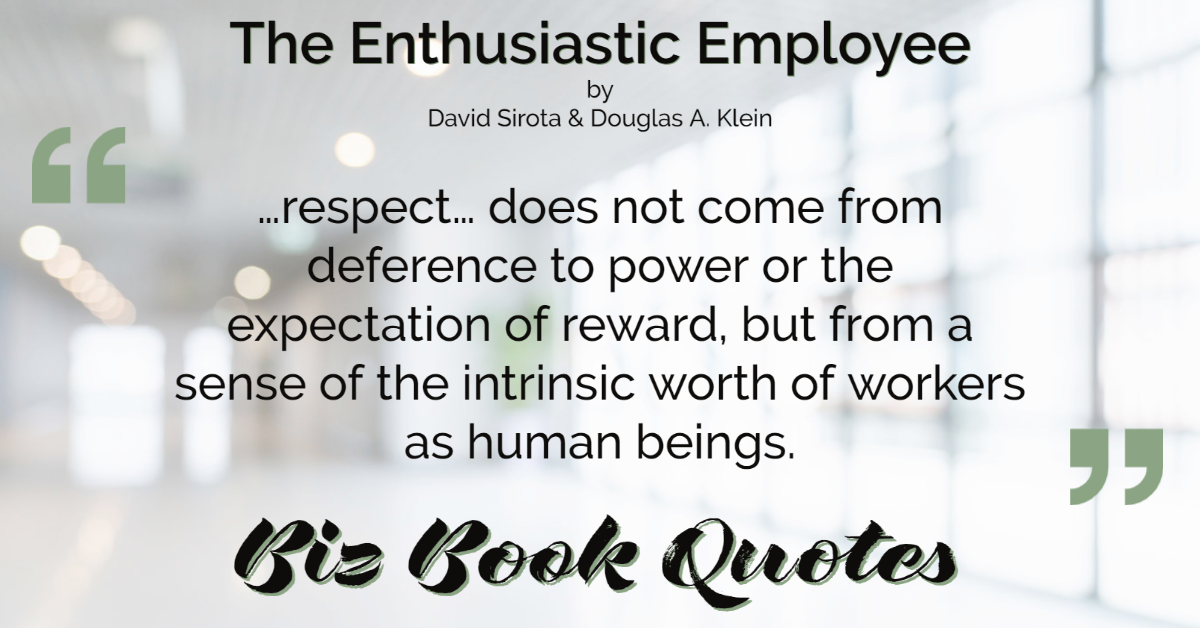
|
The Enthusiastic Employee:
…respect… does not come from deference to power or the expectation of reward, but from a sense of the intrinsic worth of workers as human beings.
|
181 |
|
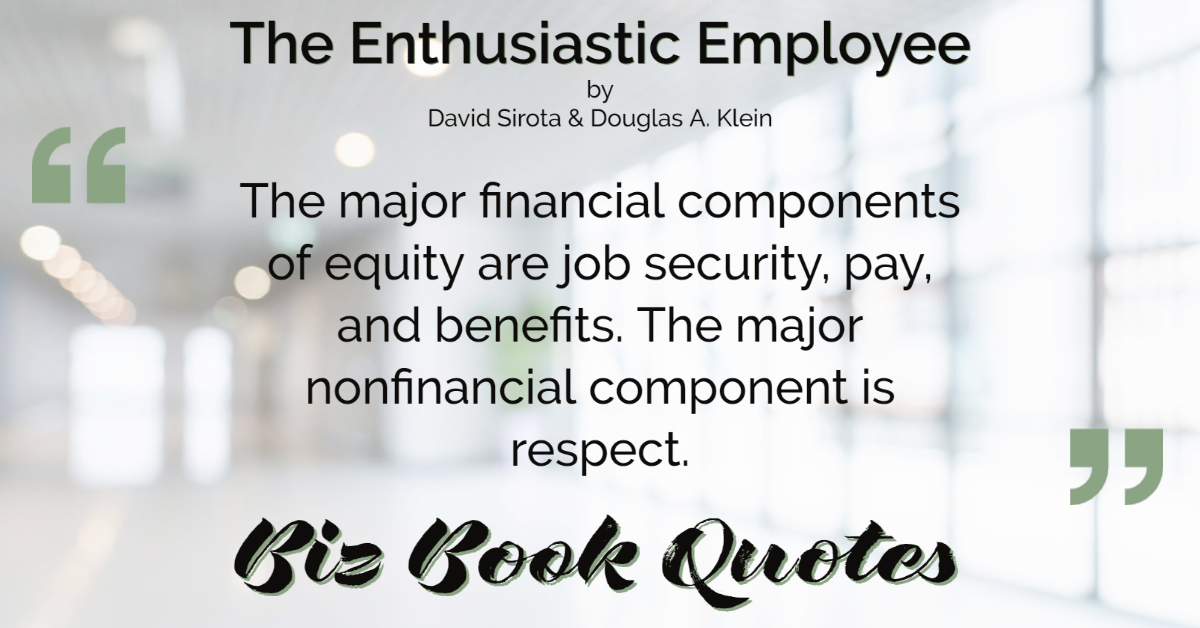
|
The Enthusiastic Employee:
The major financial components of equity are job security, pay, and benefits. The major nonfinancial component is respect.
|
182 |
|
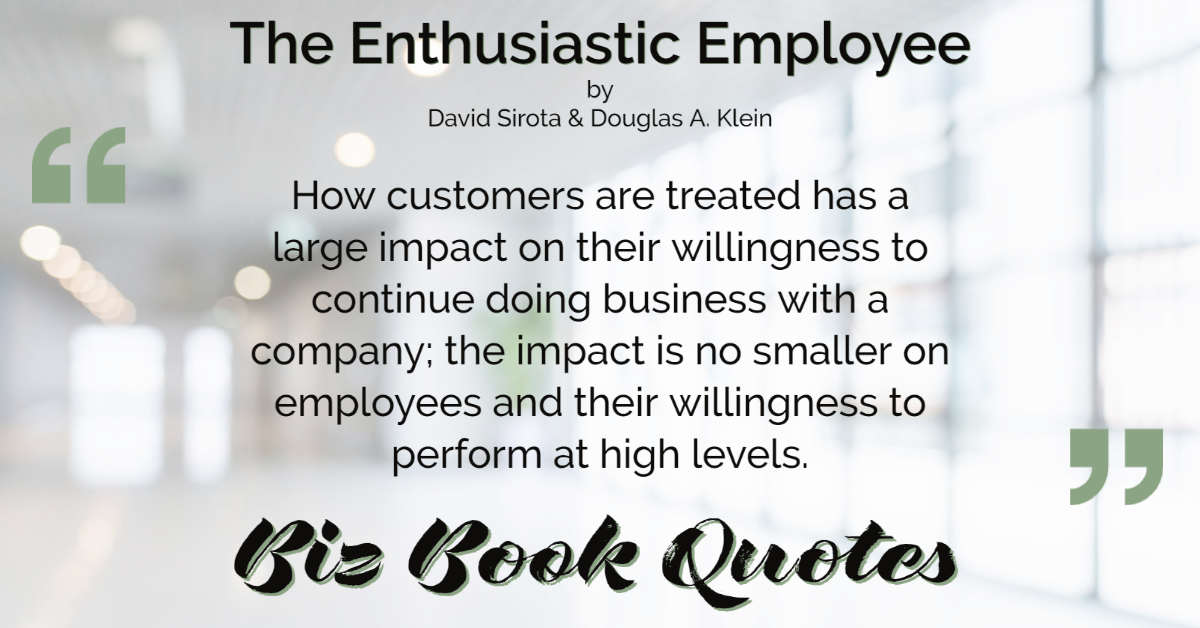
|
The Enthusiastic Employee:
How customers are treated has a large impact on their willingness to continue doing business with a company; the impact is no smaller on employees and their willingness to perform at high levels.
|
185 |
|
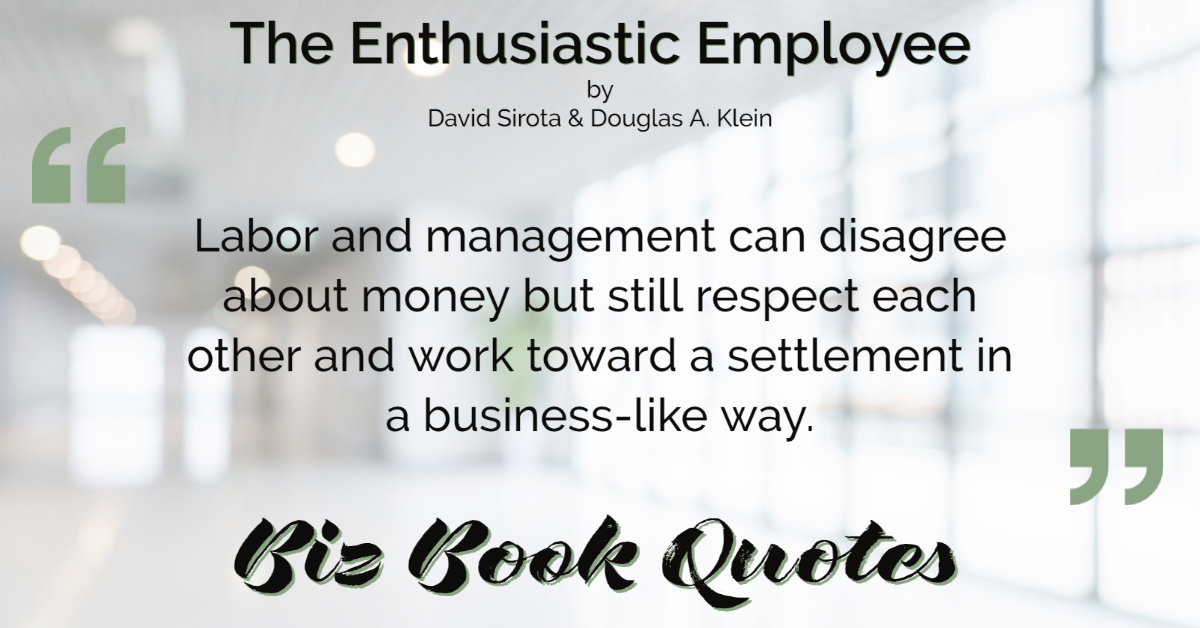
|
The Enthusiastic Employee:
Labor and management can disagree about money but still respect each other and work toward a settlement in a business-like way.
|
187 |
|
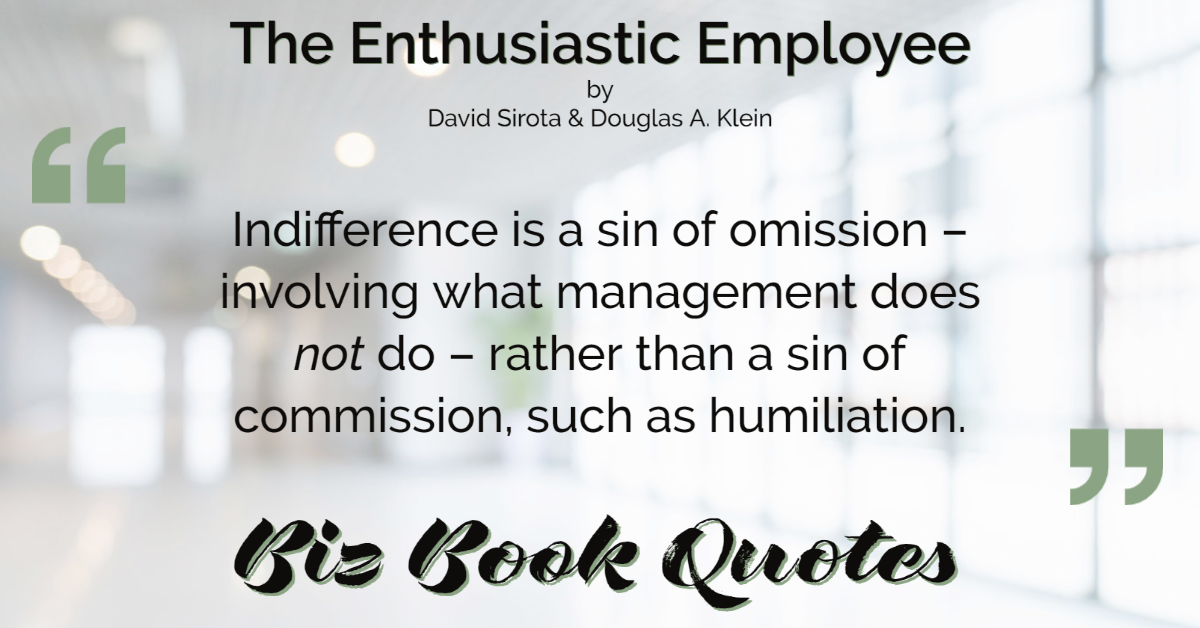
|
The Enthusiastic Employee:
Indifference is a sin of omission – involving what management does not do – rather than a sin of commission, such as humiliation.
|
190 |
|
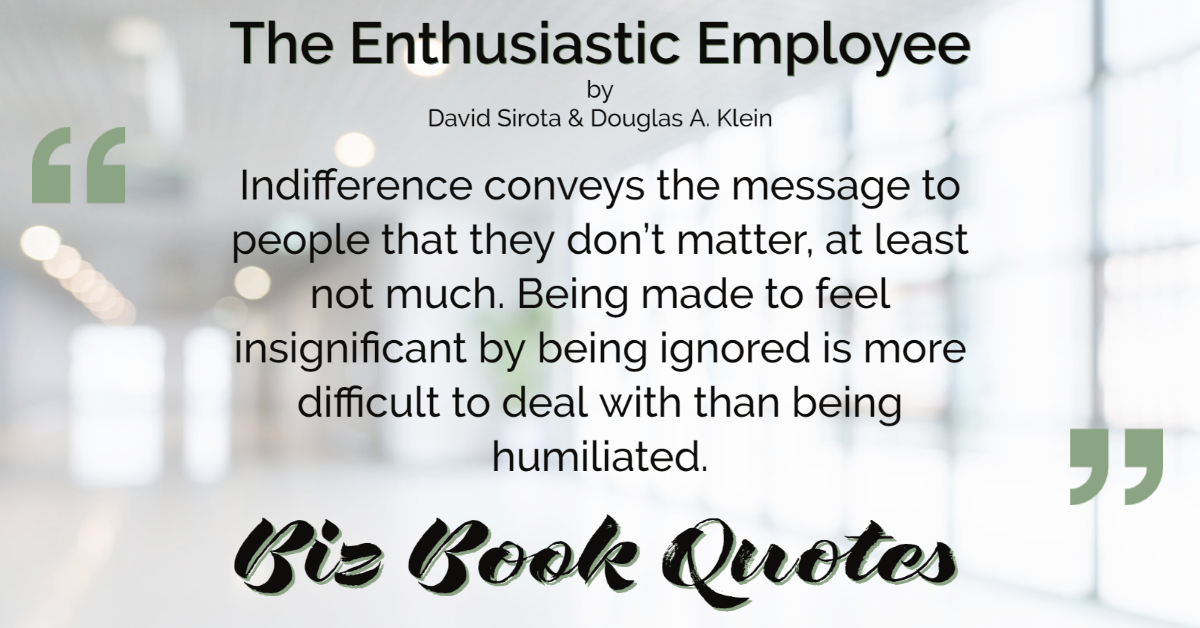
|
The Enthusiastic Employee:
Indifference conveys the message to people that they don’t matter, at least not much. Being made to feel insignificant by being ignored is more difficult to deal with than being humiliated.
|
190 |
|
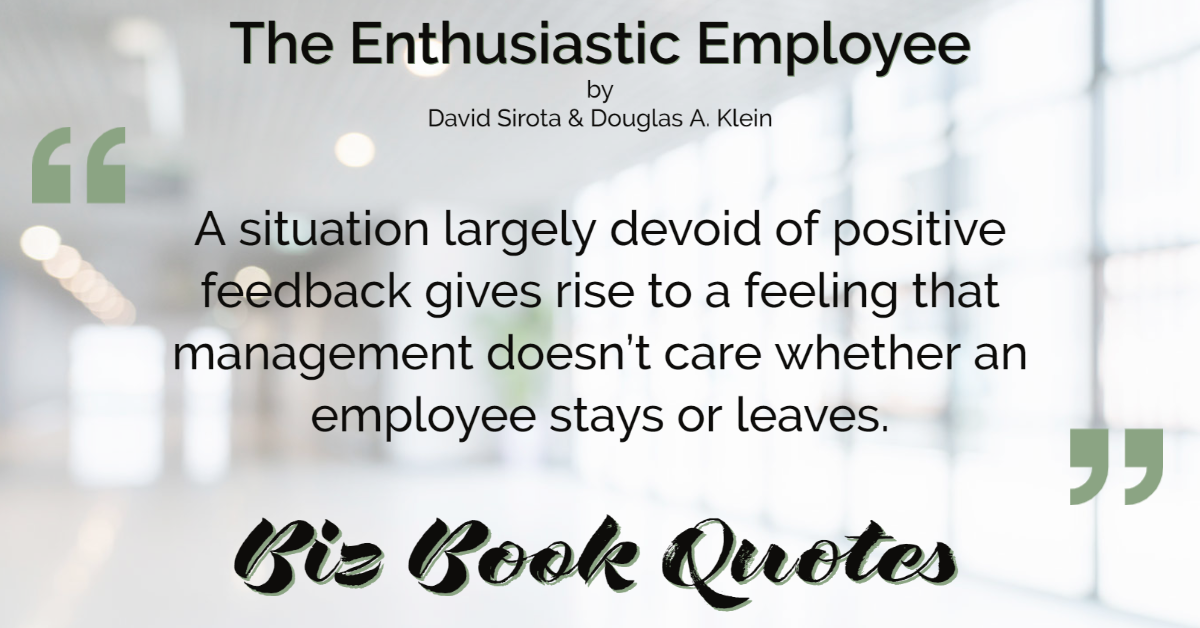
|
The Enthusiastic Employee:
A situation largely devoid of positive feedback gives rise to a feeling that management doesn’t care whether an employee stays or leaves.
|
191 |











